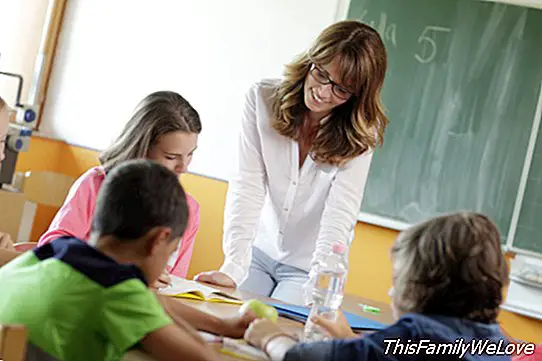Cooperative learning: benefits for children
New didactic techniques such as cooperative learning are innovating traditional educational systems of children with excellent results, as they allow improve the understanding of a subject together at the social level. Cooperative learning based on small work groups creates an atmosphere of achievement. Students work on a task until the group members have successfully completed it.
Education is much more than the mere accumulation of knowledge. The traditional school assumes learning as an individual process where each student must achieve the objectives independently, enhancing individualism and competitiveness and where what matters most is the acquisition of knowledge, leaving aside the most backward students or less participatory.
Nowadays that approach is gradually changing, giving rise to a new way of learning, where the collaboration among students, teamwork, and that is, education must be aimed at stimulate thinking, to emphasize the singularity, to sharpen the sense of creativity, to develop social skills, etc. In order to enhance all the qualities of the smallest favoring their growth at all levels and not only in knowledge. This new way of learning is called: cooperative learning.
What is cooperative learning?
Learning is not something external to students and that is why the direct and active participation of students must be encouraged.

The cooperative learning it is much more than a group work, it is a learning method where students' participation stands out, it consists of working together to achieve common objectives, leaving the focus on the individual to give more emphasis to the collective, to help the other, to relate to others, in this way students stop being passive subjects and become protagonists of learning.
A cooperatively structured classroom avoids discriminatory attitudes and encourages all students to participate in the activity, working together looking for beneficial results for themselves and the other members of the group, making the most of their own learning and that which occurs in the interrelation and taking responsibility for their learning.
5 benefits of cooperative learning for children
There are different studies that show the many benefits that the cooperative learning in the smallest. Some of the competences that students develop when cooperative learning methods are applied are;
1. Increase commitment with other colleagues. All students must work collaborating with each other to achieve the same goal. The efforts of each child also benefit others and all together will triumph or fail.
2. Promotes individual and group responsibility. All the members of the group must complete their task so that the group achieves the marked objective besides encouraging, caring and helping others in their difficulties.
3. It promotes equality and participation. Some learn from others, encouraging, in this way to share knowledge, resources, help, support ... in addition to generating positive feelings towards colleagues, and greater acceptance of diversity.
4. Improvement of social skills. This way of working helps them to learn to express agreements and disagreements, to respect the turn of the word, to listen to their classmates, to ask and offer help, to work in teams, etc.
5. Develop a critical attitude. Well, together with the teacher, they must analyze the behaviors to improve, how each partner has been involved in the work, if they have reached the objectives set and some improvement proposals.
Rocío Navarro Psychologist Director of Psicolari, integral psychology




